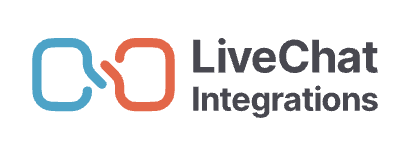Developer Integrations
Sending Message Templates via the API
First, you need to authorize using a LiveChat token. The most straightforward path is to use Personal Access Tokens (PAT):
Go to Developer Console.
Click Tools > Personal Access Tokens > Create new token.
Select
chats--access:rwscope and click Create token.Store Base64 Encoded Token for authorization.
Now, you can make authorized calls to the API.
Base API URL: https://lwb-api.livechat-integrations.com
Send Message Template
Once you create the PAT token in the console, please store the Base64 encoded version and add it to the Authorization header.
Required headers:
Authorization: Basic {token}Content-Type: application/json
API Call:
POST /whatsapp-numbers/{id}/template-messages
To receive the number id, you need to email contact@livechat-integrations.com. This will be available in the API at a later date.
Body:
Params | Type | Required | |
to | string | yes | Customer number with country code, without “+” symbol. |
template | Template object | yes | |
schedule | RFC3339 datetime | no | The time when the message will be sent in the future. Defaults to current time. The format is RFC3339. Example: |
Fetch Message Templates
Required headers:
Authorization: Basic {token}
API Call:
GET /whatsapp-numbers/{id}/template-messages
To receive the number id, you need to email contact@livechat-integrations.com. This will be available in the API at a later date.
Sending Message Template to multiple recipients
To send a Message Template to multiple recipients, use the endpoint below:
curl -X POST --location "https://api-hheidrq7cq-ue.a.run.app/v2/whatsapp-numbers/339824532553663/template-messages" \
-H "Authorization: Bearer us-south1:v2y73W-KTGbTvqAfXSa8TEF5afk" \
-H "Content-Type: application/json" \
-d '{
"template": {
"name": "template_name",
"language": {
"code": "en"
}
},
"messages": [
{
"to": "123456789000", "components": [{"type": "header", "parameters": [{"type": "image", "image": {"link": "https://images.pexels.com/photos/1108099/pexels-photo-1108099.jpeg"}}]}]
},
{
"to": "000123456789", "components": [{"type": "header", "parameters": [{"type": "image", "image": {"link": "https://images.pexels.com/photos/1108099/pexels-photo-1108099.jpeg"}}]}]
}
]
}'The response to receive should be like that:
{
"results": [
{
"to": "123456789000",
"message_id": "wamid.HBgLNDg4ODEwMDQwMzUVAgARGBI5OEJBMzc1NDFGOEIyOTU0NDkA"
},
{
"to": "000123456789",
"message_id": "wamid.HBgLNDg4ODEwMDQwMzUVAgARGBI4N0ZCNzREQjE1OTQ1QTJFMTkA"
}
]
}Receiving Status webhooks
Defining webhooks
Registration of the webhooks is a semi-manual process. All you need to do is provide us with the webhook URL. In response, you will receive a webhook secret that will be used later for verification purposes.
To register a webhook, please contact us at contact@livechat-integrations.com
The webhooks are implemented according to the Standard Webhooks Specification.
Webhooks specs
Headers
| the unique webhook identifier |
| the signature of this webhook |
| integer unix timestamp (seconds since epoch) |
Body
The webhook body has following structure:
{
"type": "webhook_type", // one of webhook types
"timestamp": "2024-10-02T09:50:53.124072075Z",
"data": {
// status update from meta
}
}The data part contains Status object from meta system.
Webhook types:
message.status
Message status allows you to receive the statuses of sent messages. Please make sure that you store the message ID on your side.
Examples:
Message sent
{
"type": "message.status",
"timestamp": "2024-10-02T09:50:37.917941416Z",
"data": {
"id": "wamid.HBgLNDg2MDk2NTU5MTEVAgARGBJGOERCNzY1MTdBQUE4REM3RUMA",
"status": "sent",
"timestamp": 1727862637,
"conversation": {
"id": "8eaad41770498bb225fa838b44c2531b",
"origin": {
"type": "marketing"
},
"expiration_timestamp": 1727949060
},
"pricing": {
"billable": true,
"pricing_model": "CBP",
"category": "marketing"
},
"recipient_id": "48635625362"
}
}Message delivered
{
"type": "message.status",
"timestamp": "2024-10-02T09:50:38.917102501Z",
"data": {
"id": "wamid.HBgLNDg2MDk2NTU5MTEVAgARGBJGOERCNzY1MTdBQUE4REM3RUMA",
"status": "delivered",
"timestamp": 1727862637,
"conversation": {
"id": "8eaad41770498bb225fa838b44c2531b",
"origin": {
"type": "marketing"
}
},
"pricing": {
"billable": true,
"pricing_model": "CBP",
"category": "marketing"
},
"recipient_id": "48635625362"
}
}Message read
{
"type": "message.status",
"timestamp": "2024-10-02T09:50:53.124072075Z",
"data": {
"id": "wamid.HBgLNDg2MDk2NTU5MTEVAgARGBJGOERCNzY1MTdBQUE4REM3RUMA",
"status": "read",
"timestamp": 1727862652,
"recipient_id": "48635625362"
}
}Message failed (wrong number)
{
"type": "message.status",
"timestamp": "2024-10-02T10:13:41.724930177Z",
"data": {
"id": "wamid.HBgMNDg2MDk2NTU5MTExFQIAERgSMTQ4MUY0NkZBQzQwQzYxMDNBAA==",
"status": "failed",
"timestamp": 1727864020,
"errors": [
{
"code": 131026,
"title": "Message undeliverable",
"message": "Message undeliverable",
"error_data": {
"details": "Message Undeliverable."
}
}
],
"recipient_id": "48635625362"
}
}message.nfm_reply
NFM Reply allows responses to the WhatsApp Flows feature to be received on your end. Learn more about https://business.whatsapp.com/products/whatsapp-flows
Examples:
Response received
Please note that response_json contains a JSON response serialized as a string.
{
"type": "message.nfm_reply",
"timestamp": "2025-05-07T08:58:48.81251522Z",
"data": {
"id": "wamid.HBgLNDg2MDk2NTU5MTEVAgASGBQzQTQzNkI3MzZFNjNGRkIwQzAxRgA=",
"from": "48123456789",
"recipient_type": "",
"timestamp": "1746608324",
"type": "interactive",
"interactive": {
"type": "nfm_reply",
"nfm_reply": {
"response_json": "{\"flow_token\":\"unused\",\"screen_0_firstName_0\":\"John\",\"screen_0_Dropdown_4\":\"0_Male\",\"screen_0_lastName_1\":\"Doe\",\"screen_3_CheckboxGroup_0\":[\"0_Email\"],\"screen_2_TextArea_0\":\"Something\",\"screen_1_RadioButtonsGroup_1\":\"0_Yes\",\"screen_1_OptIn_0\":true}",
"body": "Sent",
"name": "flow"
}
},
"context": {
"ID": "wamid.HBgLNDg2MDk2NTU5MTEVAgARGBIxQkFDMzEyRjVDRDE4MTVCOTUA",
"from": "15123456789",
"forwarded": false
}
}
}Signature verification
You can use code samples from standard-webhooks for signature verification.
More information here: Verifying webhook authenticity.
